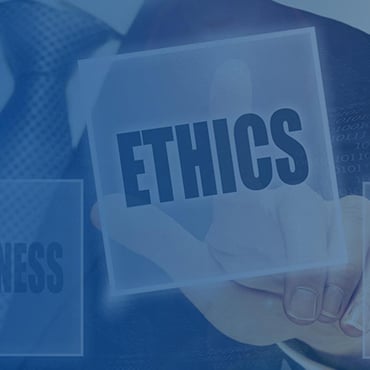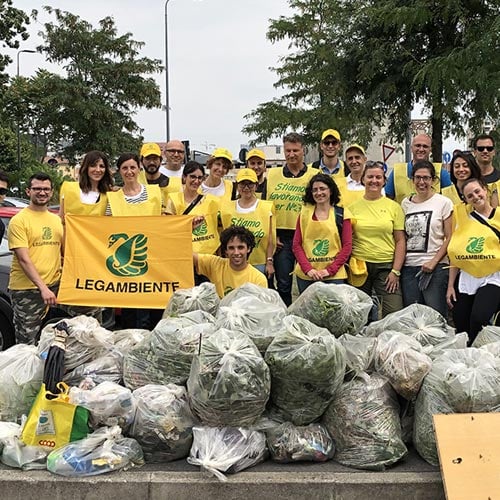Prysmian’s Code of Ethics and Compliance policies are designed to prevent bribery, corruption and unfair practices inside the company

Corporate wrongdoing at Enron, Citigroup, Bernie L. Madoff Investment Securities and WorldCom would never have come to light without employee tip-offs that were crucial to uncovering fraud and unethical practices. That’s why most major international companies have adopted whistleblower programs, including Prysmian Group.
Whistleblowing programs are one of the most effective tools for identifying fraud and misconduct. Prysmian’s compliance program set up dedicated web and telephone channels for those who may want to report possible misconduct, and may do so anonymously if they wish. The channels were monitored by an outside company, The Network Inc. In addition to these channels, Prysmian formed a Whistleblowing Committee which evaluates any concerns raised, drives specific investigations into cases where required, and ensures implementation of appropriate corrective and disciplinary measures.
General Cable has a similar program called HelpLine, which received 19 whistleblowing claims in the second half of 2018, 3 of which were confirmed.
In both programs, none of the claims were corruption-related issues.
A new, singular, whistleblowing hotline platform and policy is being implemented. Starting from July 2019 all employees and external parties will be able to raise concerns on one platform, managed by an independent provider, NAVEX Global, EthicsPoint, https://prysmiangroup.ethicspoint.com
Whistleblowing is just one part of Prysmian Group’s Code that provides guidance for Prysmian’s nearly 30,000 employees in 50 countries on how to act in line with the highest standards of fair and ethical practices.
The Code is founded on three pillars: ethics in business activities, ethics in internal relations, and ethics in environmental and social areas. It is a strategic tool to prevent irresponsible or illegal conduct by employees or others acting on the company’s behalf, and staff is encouraged to raise doubts or highlight possible violations.
The Code deals with critical business areas such as compliance with rules and regulations; handling of conflicts of interest; disclosure of financial information; and disclosure of regulatory information. Violations of the Code can lead to disciplinary action and be cause for termination.
At General Cable, all employees were required to complete training on the company’s Code of Ethics & Business Conduct.

During 2019, Prysmian Group Chief Compliance & Internal Audit Officer Alessandro Nespoli and his team are aligning the company’s Code including its anti-corruption, anti-bribery and whistleblowing procedures into a single set of guidelines fully integrated with those of General Cable. Moreover, all compliance policies and procedures will be merged and there will be a unique set of documents for both entities.
The review of the Code and of all the combined compliance policies must be approved by the Prysmian Group Board of Directors, after an initial review by the Control and Risk Committee.
Alessandro Nespoli joined the group in 2016 and quickly established the Group Compliance function. He also oversaw the Code’s last update in 2017. He believes that with the right resources, the compliance processes can be competitive advantage.
“Being smart in compliance means that we will become more agile in responding to new regulatory changes; remain one step ahead of our competitors; build awareness around our own compliance culture to help strengthen our reputation; reduce penalties and fines imposed by authorities, and instill confidence in our people, our partners, and all our stakeholders,” he says.
Preventing bribery and corruption is a key goal of the group’s ethical guidelines. Its Anti-Bribery Policy prohibits both the corruption of public officials and the corruption of private individuals, requiring all of Prysmian's employees to observe and comply with all anti-corruption legislation in force in the countries in where they are employed or active, if these are more restrictive. The group carries out a mandatory due diligence when it selects new agents (before signing the contract) and updates it every 3 years. Furthermore, Prysmian Group has adopted a new policy and process to better understand and mitigate the potential compliance risk for all Third Party transactions tied to new agents, new distributors and specific categories of new vendors. This new policy and process is being phased in across the globe during the second half of 2019.In 2018, the group launched special anti-bribery classroom training sessions for its sales force, organized in collaboration with external lecturers and legal consultants. At the same time, e-learning sessions were published and are maintained on the company’s intranet. A total of 725 white collar employees (salesforce) were trained in 2018 in compliance and in anti-bribery awareness through online courses, and 400 white collar salaried employees took part in classroom courses in anti-bribery and antitrust issues.

“It is fundamental that each and every one of us take responsibility for respecting our company’s standards,” says Giorgio Totis, Prysmian Group Compliance Director & Data Protection Officer. “Protecting the reputation of Prysmian Group is part of everyone’s job.”
General Cable adopted new anti-bribery internal controls in 2016, and trained all white-collar employees in areas anti-corruption policy, third-party approval policy, exchanging business courtesies, and dealing with conflicts of interest.
Antitrust compliance is also key to the company’s operations around the world, in order to reduce exposure to the risk of being involved in conduct that may be considered anti-competitive. The Board of Directors has adopted a restrictive Anti-Trust Code of Conduct that all directors, executives and employees of the Group are expected to know and comply with in the performance of their duties and in relations with third parties. The Anti Trust Code of Conduct lays out principles of conduct for relationships with competitors, conduct for companies holding a dominant position, conduct during merger reviews, and conduct during inspection by competition authorities.
Finally, a thorough Export Control program with the introduction of a comprehensive Export Control/Trade Compliance policy, a web based training for all salaried employees and the completion of export product classification throughout EMEA region (while kicking off the same effort across North America, with LatAm to then follow) is just another example of the successful integration of Prysmian’s and General Cable’s compliance programs.
The merger with General Cable has created new opportunities to talk about ethics with employees. In July 2018, ten cultural integration workshops were organized around the world, bringing together more than 250 of General Cable and other Prysmian employees of varied origins, roles, ages and skills, to gain better insights into the most important behavior for creating a stronger team and a better culture. The workshop results were then shared with senior management in a dedicated session. In December a second survey was held with all employees with computer access, with the aim of checking the progress of the post-merger integration process.











